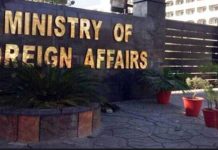DNA
ISLAMABAD: In a significant step toward building a sustainable and resilient energy future, the Centre for Economic Research in Pakistan (CERP) and researchers from Princeton University have initiated a project to develop a long-term energy transition planning framework for Pakistan.
The initiative comes at a time when Pakistan’s energy sector faces high costs, volatility, and an overreliance on imported fossil fuels, which account for nearly 60% of the country’s energy supply. Outdated infrastructure, inefficient management, and transmission bottlenecks have contributed to persistent power shortages and a growing circular debt crisis, issues that the roadmap aims to address while planning for future growth, sustainability, and climate resilience.
The launch event, “Pakistan’s Energy Transition Roadmap,” was part of a two-day workshop, the final of a three-part capacity-building and learning series, which brought together over 50 policymakers, researchers, and private-sector experts. Drawing on Princeton’s Net-Zero project expertise, this initiative will provide Pakistan with practical, evidence-based guidance on how to equitably move from reliance on expensive, imported fossil fuels to cleaner, more affordable energy sources aligned with economic growth and development goals.
Speaking at the event, Federal Minister for Energy Sardar Awais Ahmad Khan Leghari emphasized the need for an integrated plan. “The Energy and Petroleum Division are working separately, but for the plan to be truly effective, it needs to be built on real, credible data…I believe we need to formalize this relationship with CERP to help us plan better and gain valuable insights from their experts. CERP is uniquely positioned to advise us and help us identify the issues they have expertise in.”
Bilal Anwar, CEO of the National Disaster Risk Management Fund (NDRMF), added that climate risks and natural disasters make planning ahead more urgent than ever to avoid future social and economic costs.
“This project isn’t about imposing ideas, it’s about co-creating a roadmap that respects Pakistan’s unique challenges while exploring practical opportunities for cleaner, more affordable energy. At CERP, we ensure that every step we take is rooted in rigorous evidence, so that solutions are grounded in real data and tailored to Pakistan’s specific needs,” said Maroof A. Syed, President & CEO of CERP.
Reflecting on his three years with this workshop series, Dr Chris Greig, Senior Research Scientist at Princeton’s Andlinger Center for Energy and Environment, noted, “These discussions with participants, sector specialists, policymakers and other stakeholders have been valuable in helping us understand the real challenges and the urgency of finding context-specific solutions that work for Pakistan’s economy and people. They also help us think about development-compatible pathways to Pakistan’s sustainable energy future.”
Over the last three years, the Julis-Rabinowitz Center for Public Policy & Finance at Princeton SPIA has cosponsored this workshop series.

















